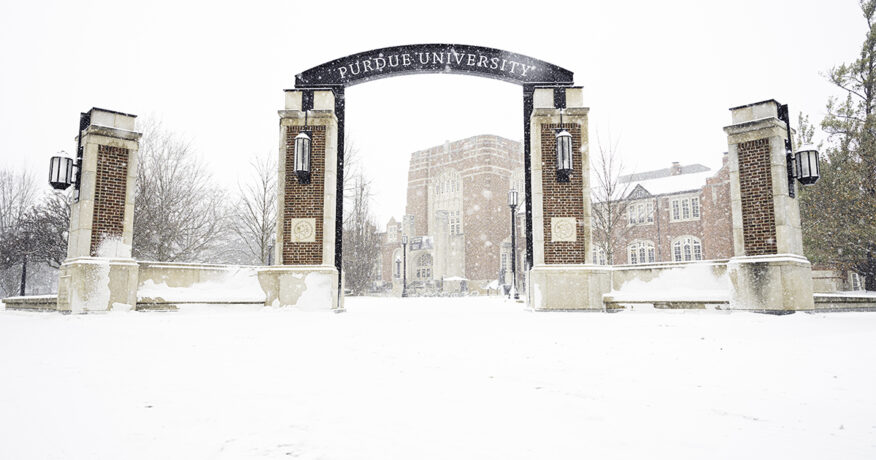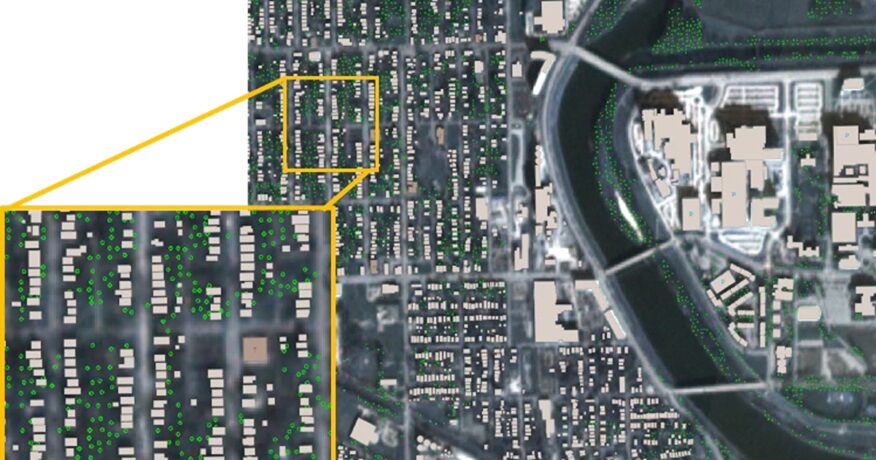Purdue trustees approve $20 million greenhouse expansion

Rendering of a greenhouse corridor used in the Lilly greenhouse master plan. (Photo provided by Erdy McHenry Architecture and Greenhouse Design Inc.)
WEST LAFAYETTE, Ind. —
Purdue University’s Board of Trustees on Friday (Feb. 4) approved a $20 million allocation toward a phenotyping greenhouse facility. A component of Plant Sciences 2.0, one of the five strategic initiatives of Purdue’s Next Moves, the facility will expand opportunities for non-invasive sensor-based phenotyping and add nearly 5,000 square feet of greenhouse research space.
The approved funding supports phase one of a master plan, which consists of demolishing two span-type greenhouses, a work center and storage. A four-season research greenhouse will be built in that space. Conveyors installed in two of the new greenhouse rooms will move plants into the Ag Alumni Seed Phenotyping Facility (AAPF) for imaging and data collection, significantly expanding plant phenotyping capabilities.
“Enabling plants from the new facility to be integrated into the existing controlled environment phenotyping facility will allow more research discoveries related to plant health, nutrition, drought and disease stress and root health,” said Bernie Engel, senior associate dean for research and graduate education for the Purdue College of Agriculture.
The College of Agriculture’s greenhouse steering and advisory committees, in collaboration with Erdy McHenry Architecture and Greenhouse Design Inc., completed the comprehensive master plan for the Lilly greenhouse complex. Design will begin in April. Construction is scheduled to start in November, with occupancy anticipated to begin by August 2024.
Upgrading the research space will add isolation chambers to allow more pest and disease phenotyping studies and additional plant growth and production space to support the university’s land-grant mission.
“To provide just one example, we’ve seen significant losses due to corn tar spot in recent years. With the addition of new isolation chambers, we can support plant pathology research and early detection strategies to mitigate the impact of such diseases,” said Mitch Tuinstra, scientific director of the Institute for Plant Sciences and professor of plant breeding and genetics at Purdue.
About Purdue University
Purdue University is a top public research institution developing practical solutions to today’s toughest challenges. Ranked in each of the last four years as one of the 10 Most Innovative universities in the United States by U.S. News & World Report, Purdue delivers world-changing research and out-of-this-world discovery. Committed to hands-on and online, real-world learning, Purdue offers a transformative education to all. Committed to affordability and accessibility, Purdue has frozen tuition and most fees at 2012-13 levels, enabling more students than ever to graduate debt-free. See how Purdue never stops in the persistent pursuit of the next giant leap at https://purdue.edu/.
Media contact: Erin Robinson, erobin@purdue.edu
Sources: Bernie Engel
Mitch Tuinstra



